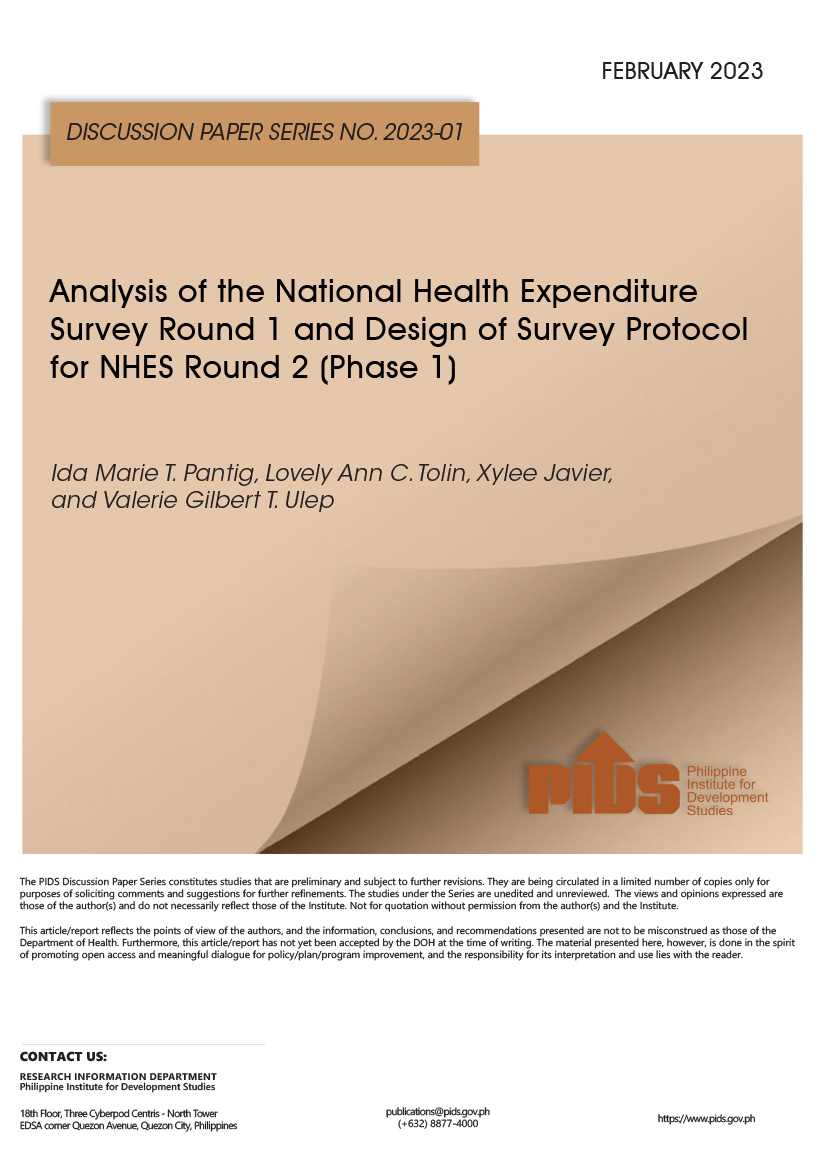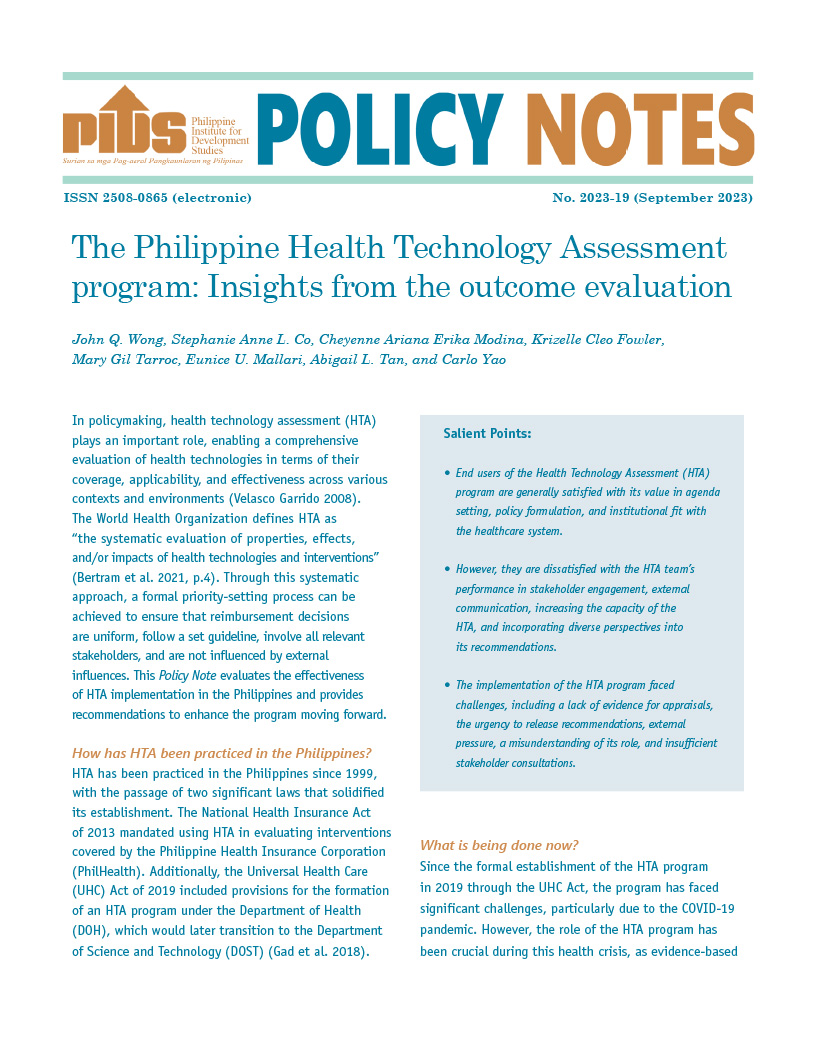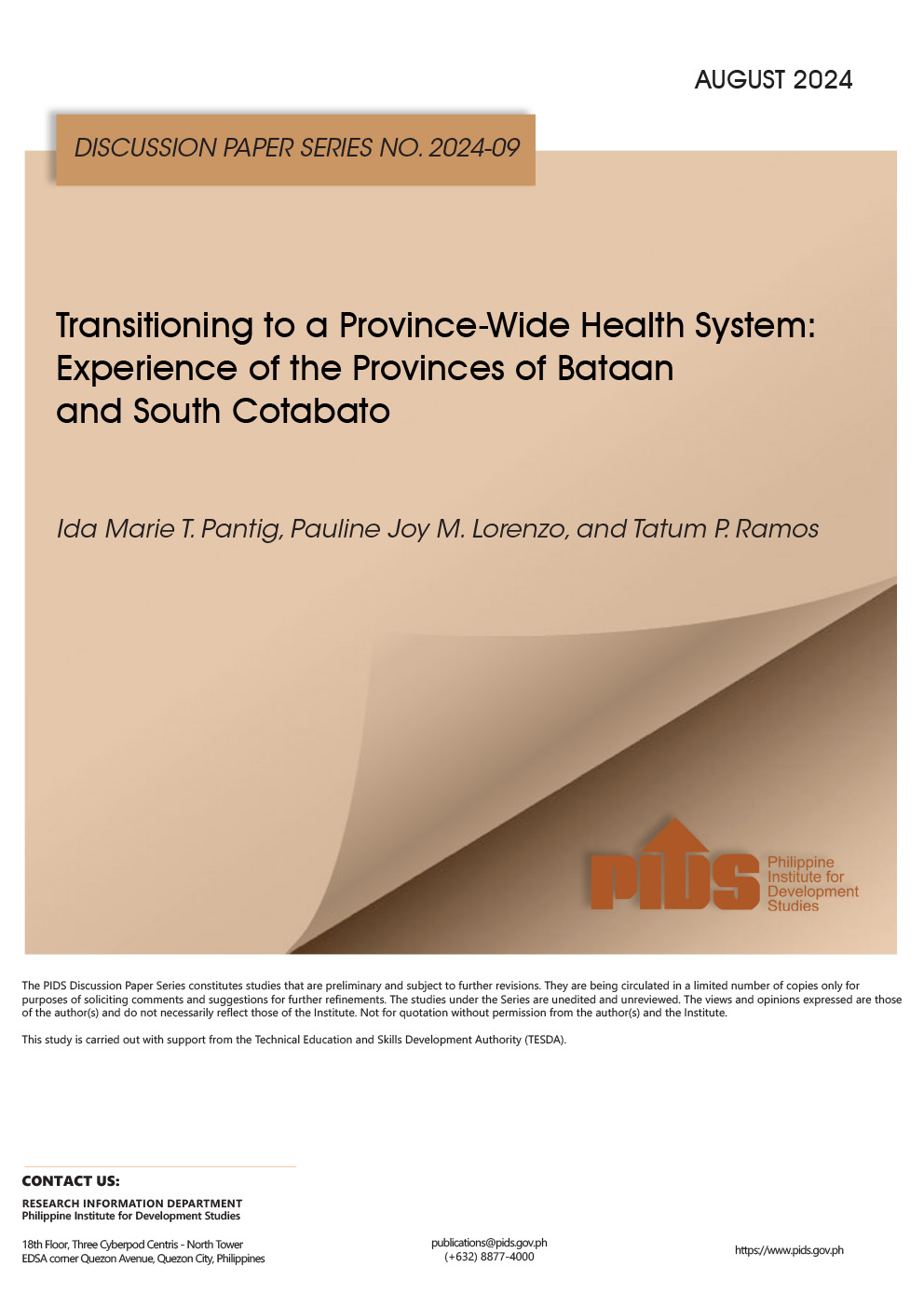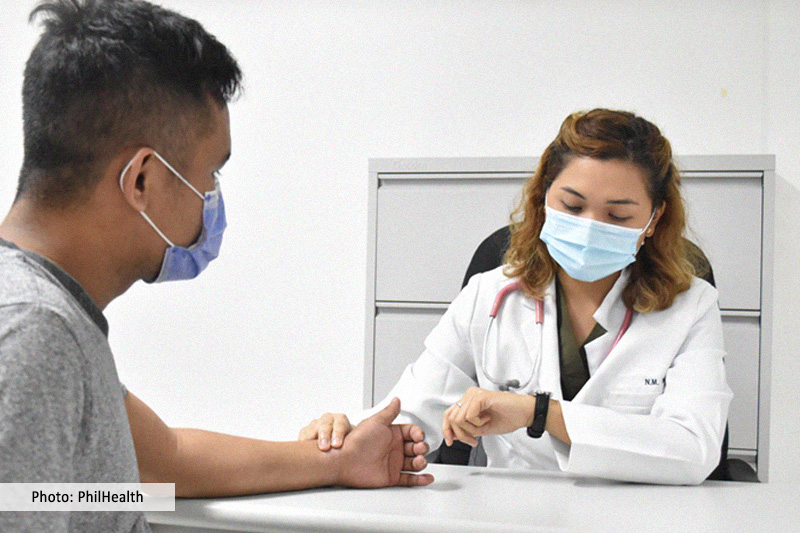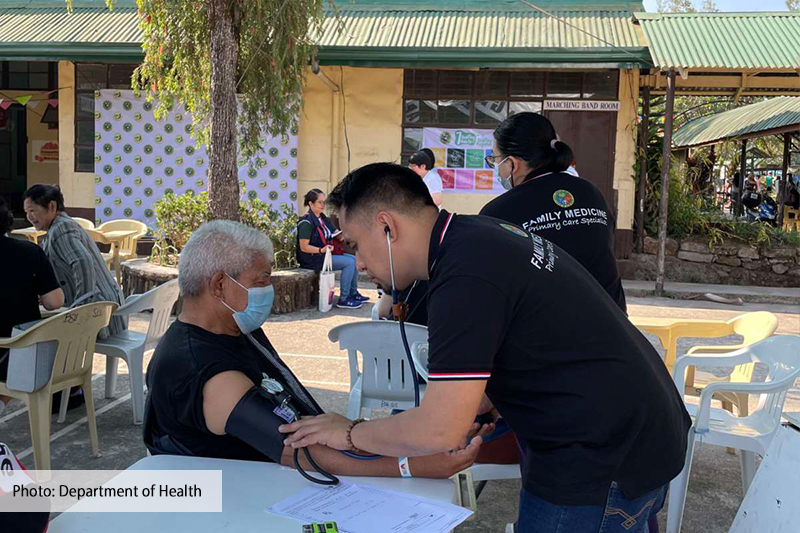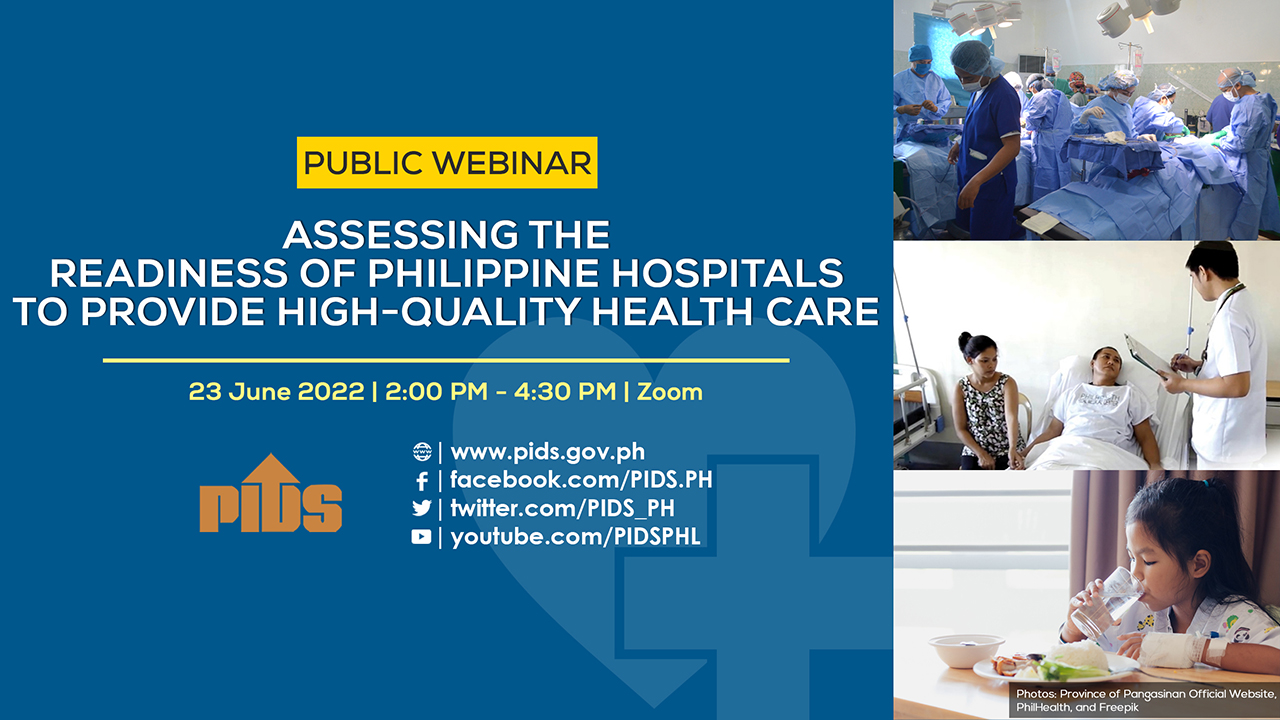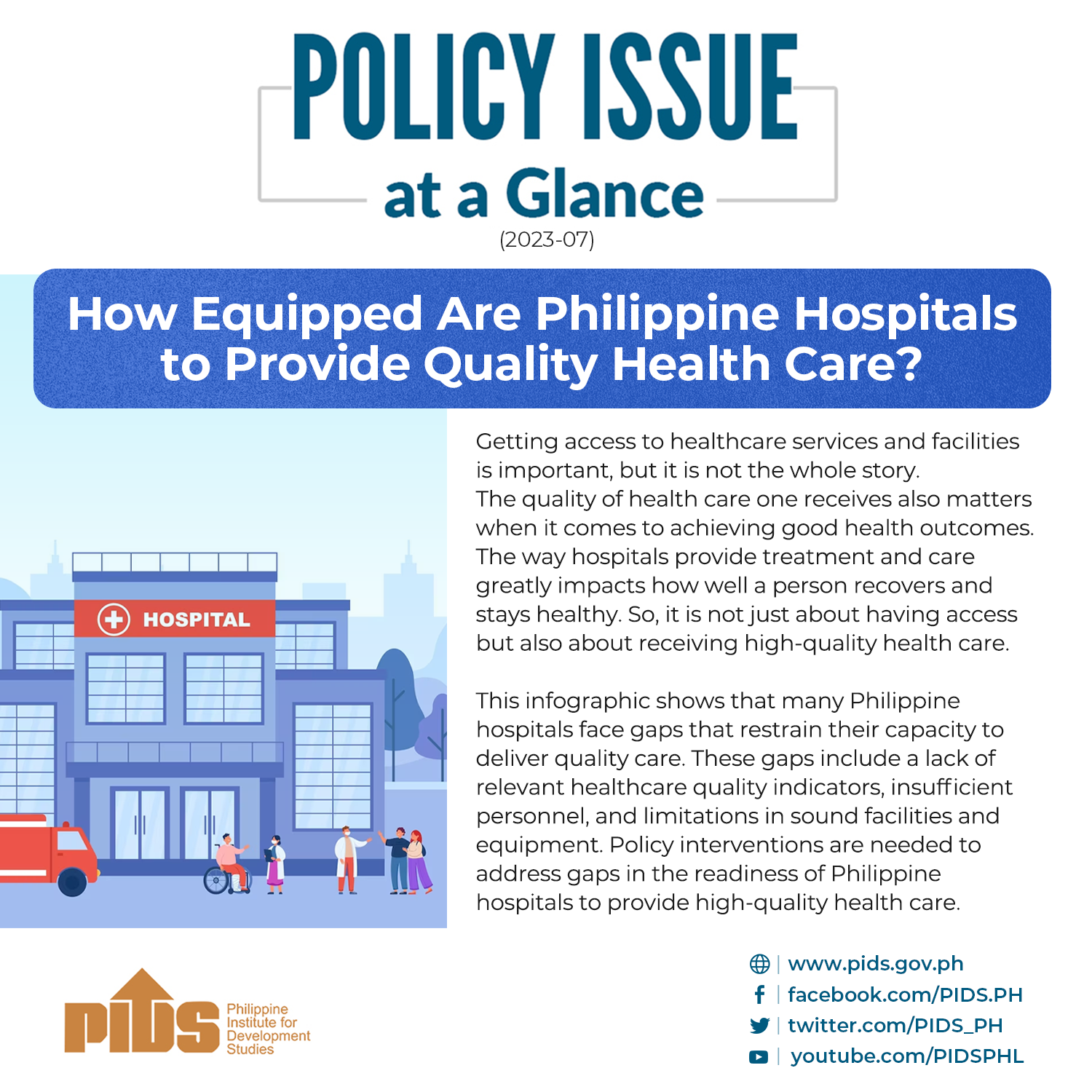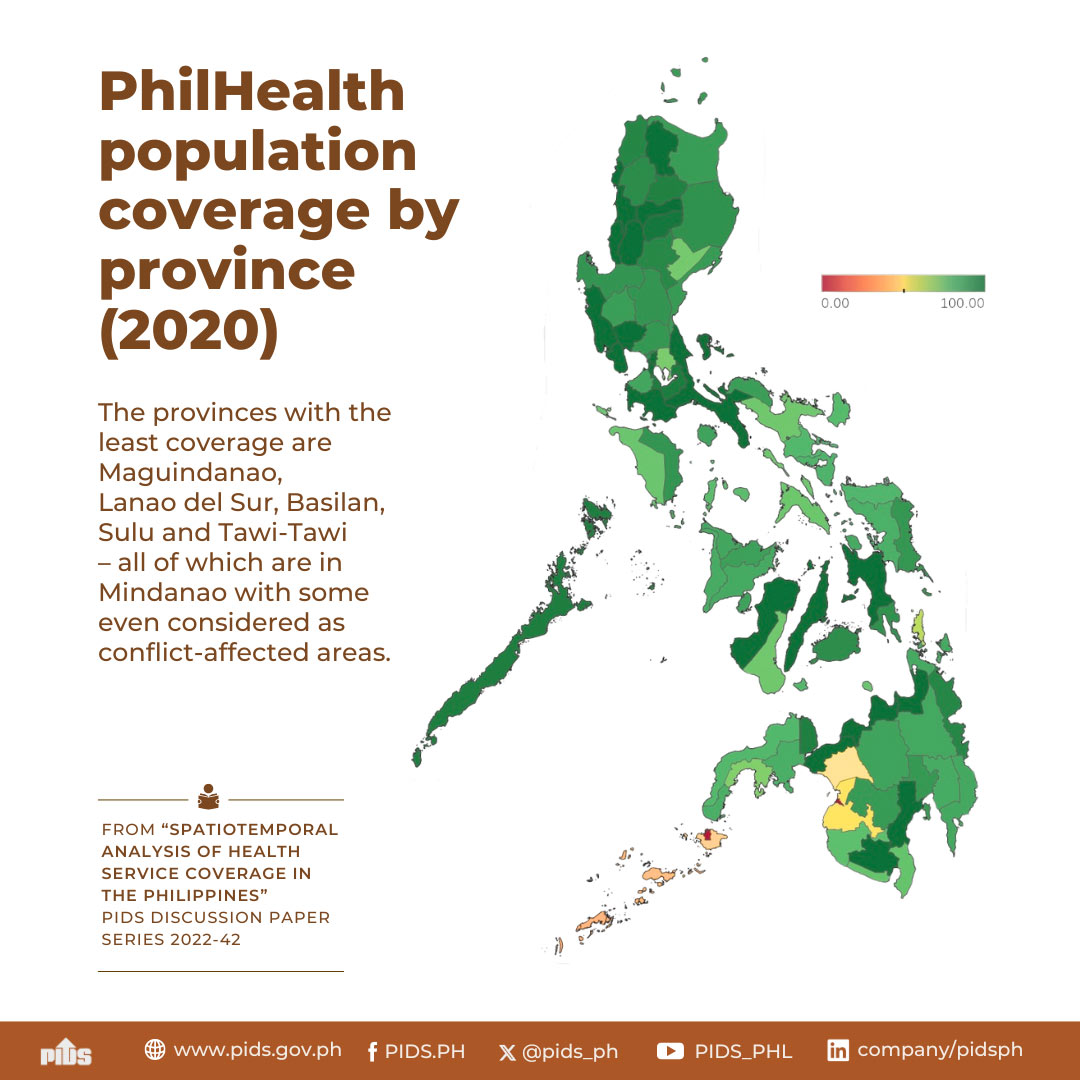From 2018 to 2021, the Department of Health (DOH), with assistance from United States Agency for International Development-Health Policy Plus (USAID-HP+) and European Union-Philippine Health Sector Reform Contract, implemented a National Health Expenditure Survey (NHES). The NHES consists of two components: a household survey (NHES-HC) and a medical provider survey (NHES-MPC). Healthcare use and financing information provided by select NHES-HC respondents are cross-referenced during the NHES-MPC with their health facility records.
Intended as a regular tool to inform decisionmaking on health sector reforms, DOH plans to implement a second round of NHES by 2022 to 2023. DOH commissioned the Philippine Institute for Development Studies to redesign the NHES questionnaires to address the challenges encountered during its first round of implementation, capture critical facets of the Universal Health Care agenda, and revise the sampling design to consider panel surveys and be representative at the regional level. NHES Round 1 related reports, datasets, and documentation obtained from DOH were reviewed to identify the recommendations.
The first round of NHES yielded rich information on health-seeking behavior and utilization, healthcare billing, healthcare expenditure, financial protection, and quality of care. The recommendations of USAID-HP+ on NHES tools are valid and sufficient as enhancements for the next round of NHES. The health utilization, expenditure, and financial information that can be collected through NHES are adequate. In NHES-HC, questions on referral; primary health care; components of out-of-pocket spending; and delay in health-seeking behavior are proposed to be added. Health facilities visited by respondents for primary care, as well as referring and/or referral facilities identified in NHES-HC with health care events in the last 6 months, are recommended to be subject to the conduct of the proposed NHES-MPC Supplemental questionnaire. Deleted questions for the next round do not necessarily mean discontinued questions but could be collected intermittently for certain rounds, particularly if NHES will be implemented as a panel survey. If so, the frequency and interval between rounds shall determine if there are sections, subsections, or questions that can be omitted in some rounds. In the meantime, some questions are proposed to be removed due to space constraints and consideration for respondent fatigue in general in lieu of other proposed questions to be explored. The abovementioned recommendations, however, are subject to change pending discussions with DOH for priority specifications and indicators. In terms of NHES sampling methodology, due to data limitations, it is proposed to use the same Round 1 sampling design with a 12,500 sample size or up to 15,625 if interested in conducting NHES as a panel design. The additional 25 percent accounts for possible attrition in the next round.
Comments to this paper are welcome within 60 days from the date of posting. Email publications@pids.gov.ph.
Citations
This publication has been cited 2 times
- Castañeda, Jing. 2024. Time to be ‘upfront’ about health choices. Philippine Star.
- DailyGuardian. 2024. Filipinos face high NCD health costs. DailyGuardian.

